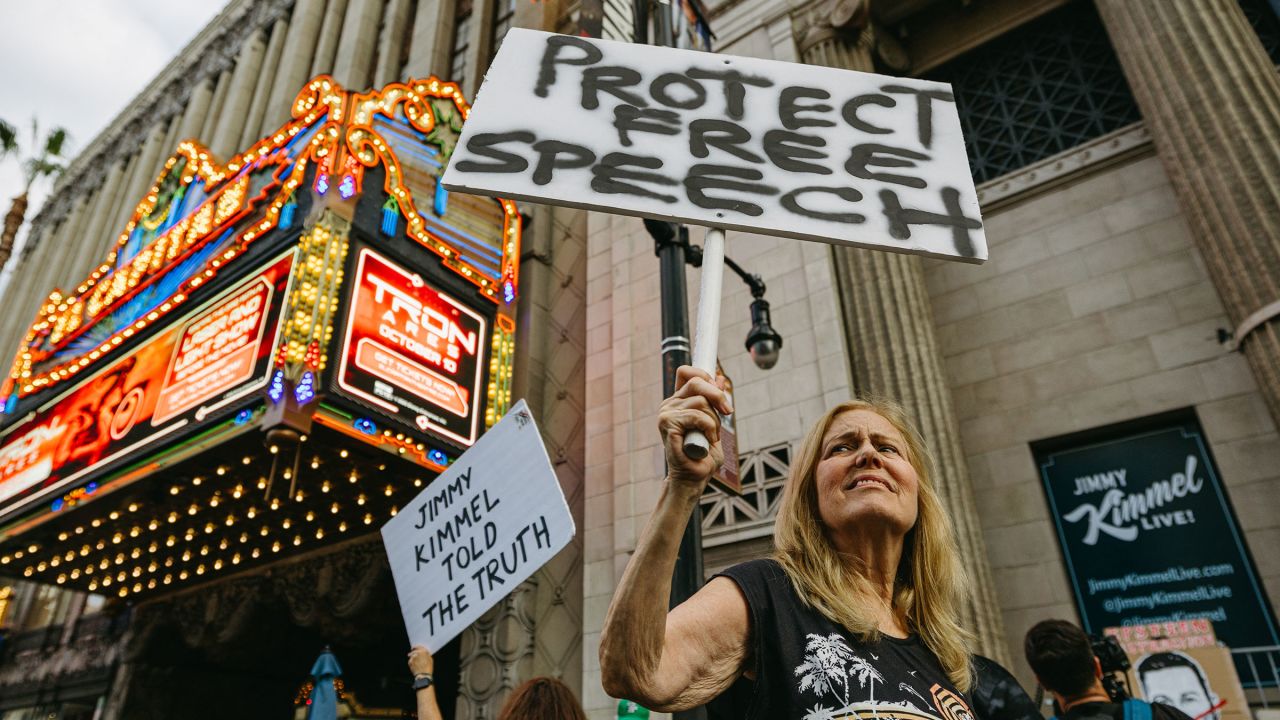Science
Jimmy Kimmel’s Show Cancellation Sparks Global Media Concerns

The recent decision to take Jimmy Kimmel’s late-night talk show off the air has raised alarm bells regarding media freedom. Critics are drawing parallels between this move and the broader anti-media sentiments expressed by former President Donald Trump, suggesting a troubling trend that echoes media suppression in various global contexts.
According to a report by CNN journalist Nathan Hodge, this situation reflects a familiar narrative seen in other countries where government actions have sought to limit press freedom. The implications of Kimmel’s sidelining extend beyond entertainment, sparking a debate on the state of journalism and public discourse in democratic societies.
The comparison between Kimmel’s situation and media crackdowns abroad is striking. In regions where press freedom is under threat, governments often employ tactics that silence critical voices. This can include censorship, intimidation, or outright bans on media outlets deemed unfavorable. Observers argue that Kimmel’s cancellation serves as a warning sign for the future of media in the United States.
Nathan Hodge notes that the environment for journalists has become increasingly hostile, particularly since Trump’s presidency. The former president frequently disparaged the media, labeling unfavorable coverage as “fake news.” This rhetoric has had a lasting impact, leading to a climate where journalists face significant challenges in reporting freely.
As discussions surrounding Kimmel’s show unfold, the media landscape appears to be shifting. The potential for self-censorship among creators and journalists rises when they fear repercussions for their work. This trend could undermine the essential role of the media in holding power to account.
In light of these developments, it is crucial for citizens to remain vigilant about the health of their media institutions. The cancellation of a prominent show like Kimmel’s is not merely a loss for late-night entertainment; it signifies a deeper concern about the vitality of free expression and the press.
While Kimmel’s show has been a staple of American late-night television, its removal from the airwaves could have broader repercussions. The public’s reaction will likely shape future discussions about media regulation and the responsibilities of broadcasters. As this situation evolves, the global community will be watching closely, considering the implications for media freedom and democratic values.
In summary, the sidelining of Jimmy Kimmel raises important questions about the state of media in the United States and its parallels with international trends in press suppression. This moment serves as a reminder of the ongoing struggle for journalistic integrity and the need for robust protections for media personnel everywhere.
-

 Lifestyle4 months ago
Lifestyle4 months agoLibraries Challenge Rising E-Book Costs Amid Growing Demand
-

 Sports3 months ago
Sports3 months agoTyreek Hill Responds to Tua Tagovailoa’s Comments on Team Dynamics
-

 Sports3 months ago
Sports3 months agoLiverpool Secures Agreement to Sign Young Striker Will Wright
-

 Lifestyle3 months ago
Lifestyle3 months agoSave Your Split Tomatoes: Expert Tips for Gardeners
-

 Lifestyle3 months ago
Lifestyle3 months agoPrincess Beatrice’s Daughter Athena Joins Siblings at London Parade
-

 World3 months ago
World3 months agoWinter Storms Lash New South Wales with Snow, Flood Risks
-

 Science4 months ago
Science4 months agoTrump Administration Moves to Repeal Key Climate Regulation
-

 Science3 months ago
Science3 months agoSan Francisco Hosts Unique Contest to Identify “Performative Males”
-

 Business4 months ago
Business4 months agoSoFi Technologies Shares Slip 2% Following Insider Stock Sale
-

 Science4 months ago
Science4 months agoNew Tool Reveals Link Between Horse Coat Condition and Parasites
-

 Sports4 months ago
Sports4 months agoElon Musk Sculpture Travels From Utah to Yosemite National Park
-

 Science4 months ago
Science4 months agoNew Study Confirms Humans Transported Stonehenge Bluestones








